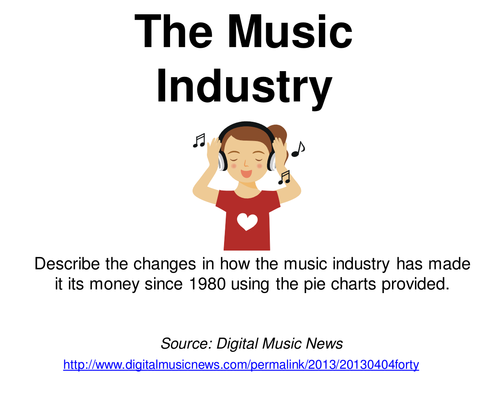Navigating The Future: Key Trends In The Music Industry For 2025

The music industry is in a constant state of evolution, shaped by technological advancements and shifting consumer preferences. As we approach 2025, understanding the key music industry trends is vital for artists, managers, and marketers. This article delves into the latest developments that are redefining the music landscape, offering insights that every music professional should consider.

Key Trends Shaping the Music Industry in 2025
As we look towards the future, several trends are emerging that could significantly impact the music industry.
The Rise of Streaming Services
Streaming services have transformed how we consume music. According to the IFPI Global Music Report, streaming accounted for 62% of global music revenue in 2022. Platforms like Spotify and Apple Music are not just music repositories but also influence how artists reach their audiences. For instance, artists like Billie Eilish and Lil Nas X have utilized these platforms to achieve unprecedented success, showcasing the power of streaming in modern music marketing.
The Role of Artificial Intelligence in Music Creation
Artificial intelligence (AI) is becoming increasingly prevalent in music production. Tools that analyze listener behavior help artists create music that resonates with audiences. For example, companies like Amper Music utilize AI to help musicians generate songs quickly, thereby streamlining the creative process. This trend not only enhances productivity but also opens new avenues for collaboration between technology and artistry.
New Opportunities in Virtual Reality and Augmented Reality
Virtual reality (VR) and augmented reality (AR) are creating immersive experiences that are changing how fans interact with music. Virtual concerts have gained traction, especially during the pandemic, with artists like Travis Scott hosting live shows in Fortnite. This approach allows artists to reach global audiences, creating unique engagement opportunities and innovative revenue streams.

The Role of Technology in Music Evolution
Technology plays a crucial role in reshaping artist management and marketing strategies.
Data Analytics in Artist Management
Modern artist management relies heavily on data analytics to understand audience preferences. Tools that track streaming statistics and social media engagement help managers make informed decisions. For instance, Lucian Grainge, CEO of Universal Music Group, emphasizes the importance of data in identifying emerging trends and talent. This focus on analytics empowers artists to tailor their strategies effectively.
Innovative Music Marketing Strategies
Music marketing is evolving with digital platforms leading the charge. Case studies show how artists like Chance the Rapper have successfully leveraged social media for grassroots marketing. His free album release strategy not only built a loyal fanbase but also demonstrated the power of direct engagement. Such innovative approaches are essential in today's competitive landscape.
Challenges and Opportunities for Artists
While the music industry offers exciting opportunities, it also presents challenges for emerging artists.
Navigating Digital Saturation
With millions of songs available online, standing out can be difficult. Artists face the challenge of breaking through the noise. Successful examples, such as Lizzo, who utilized social media to promote her music, illustrate how authenticity and engagement can differentiate an artist. Her rise to fame is a testament to the power of strategic marketing in a crowded digital space.
Financial Sustainability
Many artists struggle with financial sustainability in the streaming era. According to a report by MIDiA Research, only a small percentage of artists earn a living from streaming alone. Therefore, diversifying revenue streams through merchandise, live performances, and brand partnerships is crucial. Artists who adapt their business models are better positioned to thrive.
Future Predictions for the Music Industry
As we move forward, several predictions could shape the future landscape of the music industry.
Increased Personalization in Music Consumption
The demand for personalized music experiences will likely continue to grow. Algorithms that curate playlists based on individual preferences will enhance listener satisfaction. This trend could lead to a deeper connection between artists and their audiences.
Continued Growth of Global Music Markets
Emerging markets, particularly in Asia and Africa, are poised for significant growth. As internet access expands, more listeners will engage with diverse music genres. This opportunity presents a chance for artists to explore new sounds and reach untapped audiences.
Conclusion
The music industry is evolving rapidly, driven by technology and changing consumer behaviors. Understanding these music industry trends is essential for artists and stakeholders aiming to navigate the future effectively. By staying informed and adapting to these changes, music professionals can seize opportunities and overcome challenges. As we look ahead, embracing innovation will be key to thriving in this dynamic landscape.
Are you ready to adapt to the music industry trends? Keep exploring and engaging with the evolving landscape to ensure your success in the future of music.

